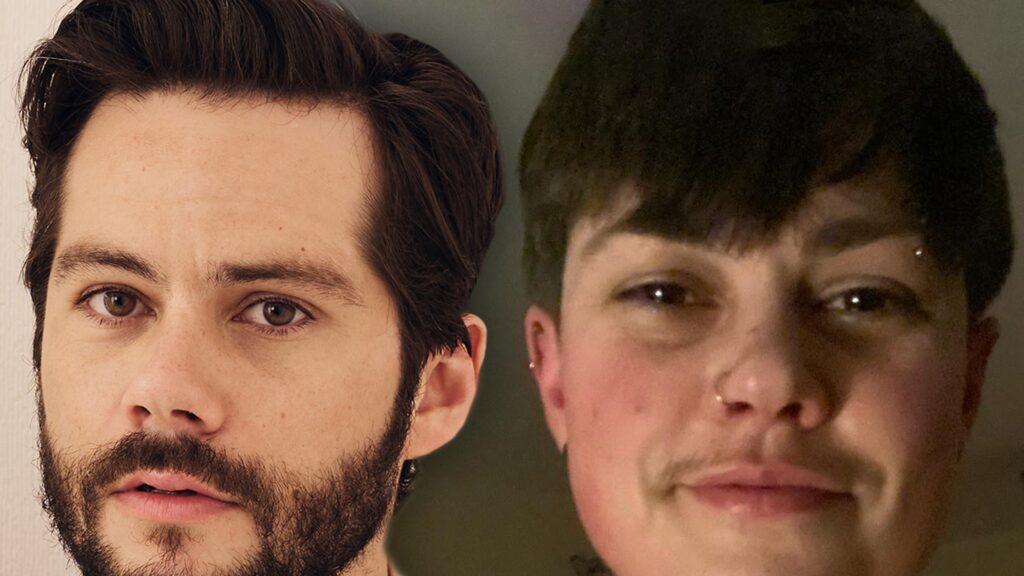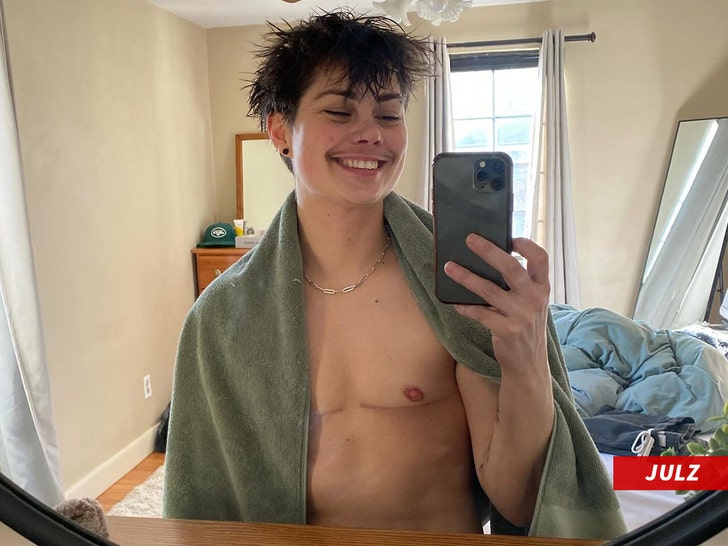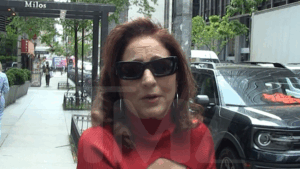
Dylan O'Brien's Trans Brother Says Actor Hasn't Spoken to Him in Over A Year
Dylan O’Brien’s Trans Brother Reveals They Haven’t Spoken in Over a Year
Table of Contents
Actor Dylan O’Brien’s relationship with his transgender brother Julz has been called into question after Julz publicly contradicted Dylan’s recent statements about being grateful for his “trans, nonbinary sibling.” In a candid Instagram comment, Julz revealed that the “Teen Wolf” and “Maze Runner” star hasn’t spoken to him in over a year, even during significant life events like his recent top surgery. This revelation came after Dylan mentioned his sibling during a Gay Times interview while promoting his new film “Ponyboi,” raising questions about the authenticity of his public allyship.
Controversy Overview
A surprising family rift has been publicly exposed between actor Dylan O’Brien and his transgender brother Julz, challenging the actor’s recent portrayal of their relationship. The controversy emerged following Dylan’s interview with Gay Times, where he spoke about his gratitude for his “trans, nonbinary sibling” while promoting his new film about an intersex character.
The situation escalated when Julz took to Instagram to correct his brother’s statements, revealing they haven’t been in contact for over a year and clarifying his gender identity as trans masculine rather than nonbinary. This contradiction has sparked discussions about authentic allyship, family relationships, and the potential exploitation of personal connections for professional gain.
Julz O’Brien responded to his brother Dylan’s statements in Instagram comments, revealing they haven’t spoken in over a year
The Gay Times Interview Claims
In his recent interview with Gay Times, Dylan O’Brien spoke about the importance of LGBTQ+ relationships in his life. During this conversation, he specifically mentioned being “super grateful” for his “trans, nonbinary sibling” and discussed how such relationships have “deepened his experience in this world.”
I’m super grateful for my trans, nonbinary sibling. I have other relationships with people who are queer, and I’m grateful for how those relationships deepen my experience in this world.
This statement came while O’Brien was promoting his new film “Ponyboi,” in which he plays a character who has an affair with an intersex sex worker. The timing of his comments suggested a connection between his personal relationship with his brother and his understanding of the role, potentially lending authenticity to his portrayal in the film.
Julz O’Brien’s Response
Shortly after the Gay Times posted about Dylan’s interview on Instagram, Julz O’Brien responded in the comments section with revelations that directly contradicted his brother’s statements. His comment was straightforward and pointed, indicating that Dylan’s public statements did not reflect their actual relationship.
Julz’s response contained three key revelations: a correction of his gender identity, the disclosure of their estrangement, and a sarcastic comment suggesting his brother may be leveraging their relationship for public image purposes rather than genuine support.

Julz O’Brien’s Instagram comment revealed the estrangement from his brother Dylan
Connection to “Ponyboi” Film Promotion
The context surrounding Dylan O’Brien’s comments about his brother takes on additional significance given the nature of his current project. “Ponyboi” features Dylan as a character engaged in a relationship with an intersex sex worker, putting themes of gender identity and LGBTQ+ experiences at the center of the film.
Industry observers have noted that discussing personal connections to LGBTQ+ communities can be beneficial for actors promoting projects with related themes, potentially lending credibility to their understanding of the material. This has raised questions about whether Dylan’s public statements about his brother were motivated by genuine appreciation or promotional strategy.
The timing of Dylan’s comments during the promotional tour for a film dealing with intersex and LGBTQ+ themes has raised questions about the potential commodification of personal relationships for professional gain, especially in light of Julz’s revelations about their actual relationship status.
Identity Correction and Misrepresentation
A significant aspect of Julz’s response was the correction of his gender identity. While Dylan referred to his sibling as “trans, nonbinary,” Julz clarified that he identifies as “trans masc” and uses he/they pronouns, not exclusively they/them as might be assumed from Dylan’s description.
This mischaracterization raises important questions about how well Dylan understands his brother’s identity, particularly given their apparent estrangement. Accurate representation of transgender identities is considered fundamental to respectful allyship, making this apparent error notable in the context of Dylan positioning himself as an ally.
“Trans, nonbinary sibling”
Implied close, supportive relationship
Portrayed as an ongoing connection
Described as a relationship that “deepens experience”
“Trans masc” identity (he/they pronouns)
No contact for “over a year”
Absence during significant life events
Sarcastic reference to “deepening experience”
Missed Important Milestones
In his candid response, Julz specifically mentioned two significant milestones that his brother was absent for: his top surgery and his recent birthday. These absences paint a picture of a brother who has not been present during important moments in Julz’s life and transition journey.
Dylan and Julz’s last communication, according to Julz’s statement
Julz undergoes top surgery without contact from Dylan
Julz celebrates birthday without acknowledgment from Dylan
Dylan mentions “gratitude” for trans sibling in Gay Times interview
Julz responds publicly on Instagram, revealing the estrangement
Top surgery represents a significant and often transformative moment in the lives of many transgender men and transmasculine individuals. Similarly, birthdays are traditional occasions for family connections. The absence of contact during these events stands in stark contrast to Dylan’s public expression of gratitude and support.
Broader Conversation on Authentic Allyship
This incident has sparked a broader conversation about authentic allyship versus performative support. True allyship to transgender individuals often involves ongoing personal support, correct use of chosen names and pronouns, and genuine efforts to understand a person’s specific identity and needs.
Many advocates for transgender rights have noted that public statements of support, while valuable for visibility, must be backed by consistent private actions. This disconnect between Dylan’s public comments and private behavior has resonated with many discussions about the nature of meaningful allyship.
Authentic allyship to transgender individuals typically involves consistent support, proper use of correct pronouns and identity terms, and being present during significant transition milestones—not just public declarations of support.
This situation also highlights the complexity of family relationships when a member comes out as transgender. While some families grow closer through this experience, others may struggle with acceptance or maintaining relationships across differences in understanding or values.
Media and Public Reaction
Since Julz’s revelations, the story has gained traction across social media and entertainment news outlets. Reactions have been mixed, with some expressing disappointment in Dylan’s apparently misleading statements, while others have noted that family relationships are complex and the public may not have the full picture.
The incident has also sparked discussions about the responsibilities of public figures when discussing their relationships with transgender family members. Many commentators have emphasized that transgender individuals should maintain agency over their own stories, rather than having their identities used as talking points by others—even well-intentioned family members.
When celebrities mention their trans relatives while promoting projects, they need to ensure they have those relatives’ permission and are accurately representing both their identity and relationship. Otherwise, it can feel like mining someone else’s life experience for professional gain.
Dylan O’Brien’s Response (or Lack Thereof)
As of the time of reporting, Dylan O’Brien has not publicly responded to his brother’s comments. Media outlets have reached out to the actor’s representatives for comment, but no statement has been issued addressing the contradiction or clarifying the nature of their relationship.
This silence has left many questions unanswered about the discrepancy between Dylan’s portrayal of their relationship and Julz’s account. The absence of a response has itself become part of the story, with some observers suggesting it may indicate uncertainty about how to address the public contradiction.
Key Points in the Dylan O’Brien – Julz O’Brien Controversy
- Dylan O’Brien mentioned being “super grateful” for his “trans, nonbinary sibling” in a Gay Times interview
- Julz O’Brien responded on Instagram clarifying he is trans masculine, not nonbinary
- Julz revealed they haven’t spoken in over a year, including during his top surgery and birthday
- The comments came during Dylan’s promotion of “Ponyboi,” a film dealing with intersex and LGBTQ+ themes
- Julz’s sarcastic comment suggested Dylan may be using their relationship to enhance his public image
- The incident has sparked discussions about authentic versus performative allyship
- Dylan has not publicly responded to his brother’s statements as of this reporting
- The controversy highlights important issues about representation and family relationships in transgender experiences
This developing story highlights the complexities of family relationships, public declarations of allyship, and the responsibilities that come with discussing others’ identities in public forums. As more information potentially emerges, the conversation around authentic support for transgender family members versus public performance is likely to continue.







